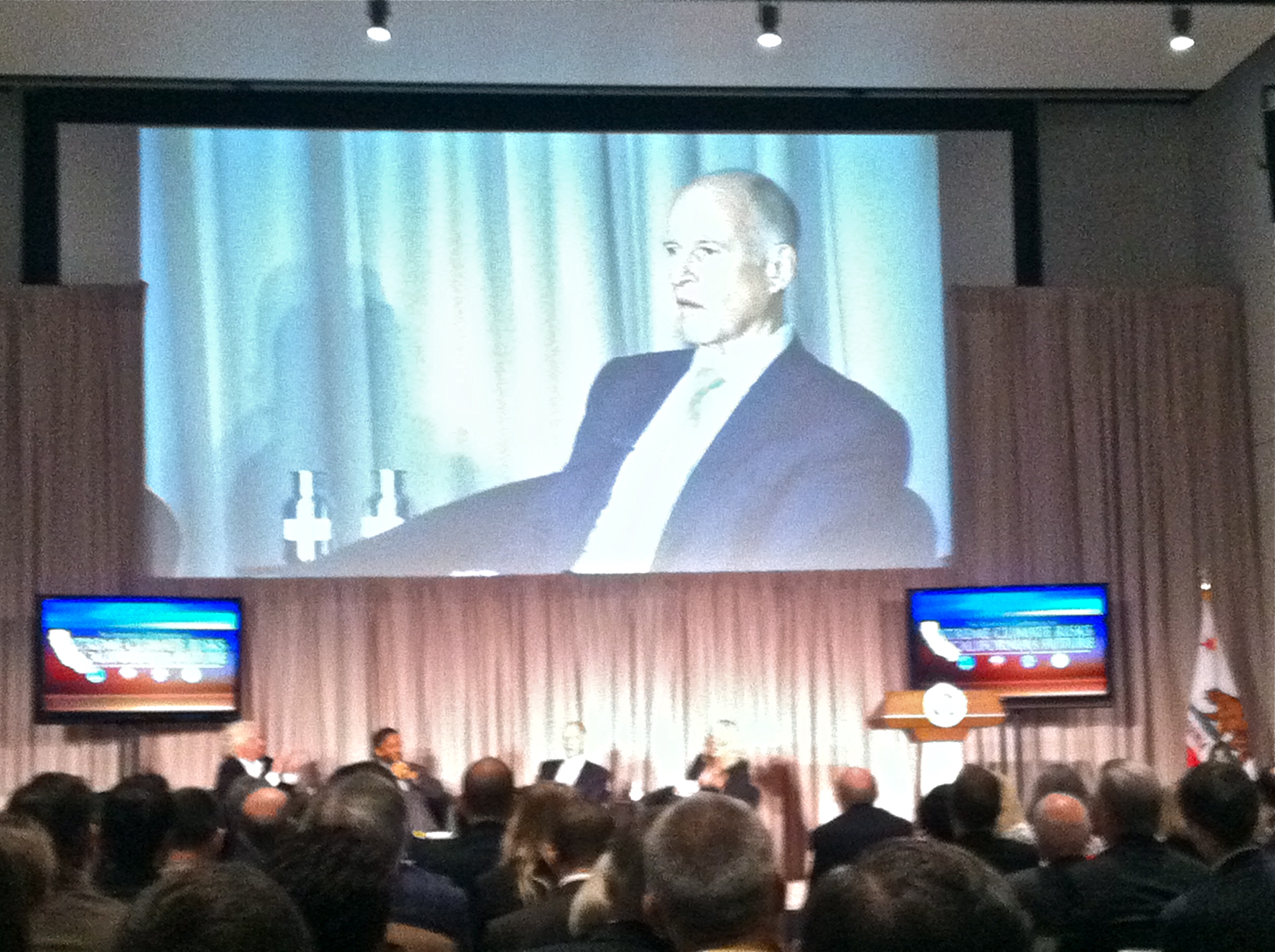Today I attended the California Governor's Conference on Extreme Climate Risks and California's Future, held at the California Academy of Sciences in San Francisco. It was a lively event with speakers including Governor Brown, Dr. Rajendra Pachauri, Chair of the UN IPCC, Sir Richard Branson of Virgin Group, former Governor Arnold Schwarzenegger, and a host of distinguished scientists, economists, and policymakers.
The backdrop of the California Academy of Sciences set the perfect tone for a day of hard science and big questions concerning the future of California and the US in an era of climate change and extreme weather events.
 In November, the IPCC issued a report validating the connection between climate change and extreme weather events. Increased rainfall will lead to effects such as greater flooding and more powerful storms, and warmer temperatures will lead to increases in drought, wildfires, and heatwaves. Thursday's conference addressed the effects of rising temperatures and extreme weather events on California's economy, agricultural production, public health, and essential public services like water infrastructure.
In November, the IPCC issued a report validating the connection between climate change and extreme weather events. Increased rainfall will lead to effects such as greater flooding and more powerful storms, and warmer temperatures will lead to increases in drought, wildfires, and heatwaves. Thursday's conference addressed the effects of rising temperatures and extreme weather events on California's economy, agricultural production, public health, and essential public services like water infrastructure.
Felicity Barringer of the New York Times asked Governor Brown whether he thought climate change mitigation or adaptation was more important to address right now. Governor Brown replied that his goal "is to make California the leader in renewable energy," a response that seems very in line with mitigation.
Yet adaptation comes into play in regard to energy, as well, as transmission lines will be under increased risk from wildfire due to rising temperatures, and power facilities near coasts will be subject to increasing storm surge and sea level rise. UC Berkeley Economist Max Auffhammer made the analogy to planning for old age: we know it's coming, so we should do something about it.
Governor Brown was at his best, stating,
The main thing we have to deal with in climate change is the skepticism, the denial and the cult-like behavior of the political lemmings that would take us over the cliff.
Brown stated that extreme weather events should serve as a "wake-up call" to take proactive measure s such as investing in freshwater infrastructure and accelerating the use of renewables. This sentiment was shared by other panelists, including former Governor Schwarzenegger, who called for greater use of renewables and said that the debate over bankrupt solar panel maker Solyndra was "narrow-minded" at a time when many other business failed, as well.
s such as investing in freshwater infrastructure and accelerating the use of renewables. This sentiment was shared by other panelists, including former Governor Schwarzenegger, who called for greater use of renewables and said that the debate over bankrupt solar panel maker Solyndra was "narrow-minded" at a time when many other business failed, as well.
CLEE at Berkeley Law hosted a lead-in event to this Conference on Wednesday night, with speakers from Berkeley Law, the Nature Conservancy, and the San Francisco Bay Conservation and Development Commission. The event focused on policy tools, such as using nature-based strategies for climate change adaptation to protect against extreme weather events.
While I saw no actual lemmings on site, I did catch a peek of the aquarium on my way out.

No comments:
Post a Comment